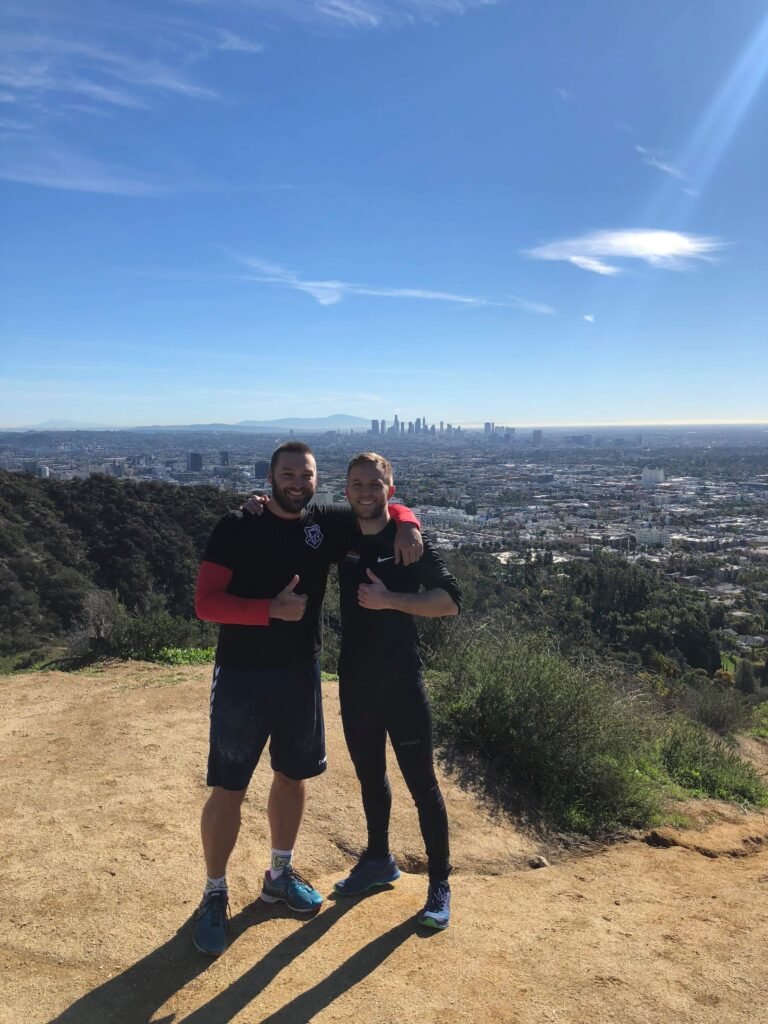EB1 vs EB2 Visa: Choosing the Right Path for Your U.S. Journey
If you’ve been dreaming of moving to the U.S. and have your sights set on the EB1 or EB2 visa, you’re in good company! These visas are popular choices for professionals, academics, and entrepreneurs worldwide. But let’s be real—figuring out which one is right for you can feel like solving a complicated puzzle.
Don’t worry; I’ve got you covered. In this guide, we’ll break down the key differences, what each visa offers, and how to make the best choice for your goals. Whether you’re a top-tier researcher or a skilled worker looking to advance your career, this is your go-to breakdown!
EB1 vs EB2 Visa? How they are Different
Navigating the U.S. visa landscape can feel overwhelming, especially when choosing between employment-based visa categories like EB1 and EB2. Each offers unique opportunities for skilled professionals, but their requirements and processes differ significantly. Below is a comprehensive overview of these two visas to help clarify their distinctions.
EB1 Visa Overview
The EB1 visa is an employment-based visa for “priority workers,” and it’s often viewed as the elite tier of employment-based immigration. This category is reserved for individuals who demonstrate exceptional talent or achievement in their fields. Here’s what sets the EB1 visa apart:
- Designed for Outstanding Individuals: The EB1 visa targets professionals like outstanding professors and researchers, multinational executives or managers, and individuals with extraordinary abilities in the arts, sciences, education, business, or athletics.
- Extraordinary Abilities: Applicants must provide substantial evidence of achievements that place them at the very top of their field. Examples include major awards, significant publications, or recognized contributions that have garnered national or international acclaim.
- Streamlined Process: One of the greatest benefits of the EB1 visa is its faster processing time. Additionally, unlike other employment-based visas, it does not require a labor certification, making it a popular choice for eligible candidates who want to avoid the lengthy PERM process.
- Challenging Qualification: While the benefits of the EB1 are substantial, meeting the qualifications is exceptionally challenging. Applicants must prove they meet at least three of the ten criteria or possess a major, one-time achievement like a Pulitzer, Oscar, or Olympic medal.
EB2 Visa Overview
The EB2 visa caters to a broader applicant pool than the EB1 but still requires applicants to possess advanced skills or meet specific educational or professional benchmarks. This visa is generally targeted at individuals who can contribute significantly to the U.S. economy or community.
- Advanced Degree Professionals: The EB2 visa requires applicants to hold an advanced degree (e.g., a master’s or PhD) or a bachelor’s degree coupled with five years of progressive work experience in their field. Degrees earned abroad are acceptable, provided they are evaluated as equivalent to U.S. qualifications.
- Exceptional Ability: For those without advanced degrees, the EB2 is still an option for individuals who can demonstrate exceptional ability in their chosen field. This involves providing proof of major contributions, significant achievements, or recognition that goes beyond standard professional capabilities.
- Labor Certification (PERM): A distinguishing feature of the EB2 visa is its typical requirement for labor certification. The PERM process verifies that hiring the foreign applicant will not displace qualified U.S. workers and that the employer is offering the prevailing wage.
- National Interest Waiver (NIW): One of the most attractive features of the EB2 visa is the option to bypass the PERM requirement via the National Interest Waiver. Candidates can self-petition for this waiver if they can prove that their work will benefit the U.S. to such an extent that waiving the labor certification process is in the national interest.
Key Differences Between EB1 vs EB2 Visa
When deciding between the EB1 and EB2 visa categories, understanding their distinctions is crucial. Both visas offer pathways to permanent residency, but the processes, requirements, and benefits differ significantly. Below is a breakdown of the key differences across eligibility criteria, processing speed, and costs.
Eligibility Criteria
The primary distinction between the EB1 vs EB2 visa lies in who qualifies for each.
- EB1 Eligibility:
EB1 visas are reserved for individuals who have reached the pinnacle of their profession or field. The term “extraordinary ability” sets a high bar, requiring applicants to demonstrate achievements that are exceptional on a national or international scale.- Examples of eligible candidates:
- Nobel Prize or Oscar winners: Their work is universally recognized at the highest level.
- Outstanding professors or researchers: Must demonstrate international recognition for their contributions.
- Multinational executives or managers: Those who have held leadership positions in a company with international operations for at least one year.
- Applicants must meet strict documentation requirements to prove their achievements, often involving a combination of major accolades, critical publications, or significant contributions to their industry.
- Examples of eligible candidates:
- EB2 Eligibility:
While still aimed at skilled professionals, the EB2 visa casts a wider net. It is designed for individuals who are well-qualified but may not necessarily be at the absolute top of their field.- Examples of eligible candidates:
- Advanced degree holders: Those with a master’s degree (or equivalent) or a bachelor’s degree combined with five years of progressive work experience.
- Individuals with exceptional ability: Must provide proof of skills or achievements significantly above the average in their field.
- National Interest Waiver (NIW) candidates: Those who can show their work benefits the U.S. so significantly that waiving labor certification is justified.
- While the EB2 has broader eligibility, applicants may need to clear additional hurdles, such as labor certification (in most cases), which verifies their employment won’t negatively impact U.S. workers.
- Examples of eligible candidates:
Processing Speed
Another significant difference between EB1 and EB2 visas is how quickly applications are processed.
- EB1 Processing:
The EB1 visa is known for its streamlined approval process.- Labor certification not required: The omission of this step eliminates months of waiting, speeding up the path to green card approval.
- Priority date advantages: With fewer applicants and higher preference in visa availability, EB1 petitions often face minimal delays.
- This makes EB1 ideal for individuals who need to relocate to the U.S. promptly or who are seeking a straightforward process.
- EB2 Processing:
EB2 visas generally have longer processing times, especially for applicants who require labor certification.- Labor certification (PERM): This step verifies that hiring a foreign worker will not negatively impact U.S. employees. However, it involves advertising the position and navigating Department of Labor reviews, which can take months.
- National Interest Waiver (NIW): While applicants with an NIW can skip labor certification, proving eligibility for the waiver can still add complexity and time to the process.
- Furthermore, certain countries with high application rates (like India or China) often face longer waits due to visa retrogression or backlogs in EB2 categories.
Cost Differences
The financial aspect of applying for an EB1 vs EB2 visa also sets them apart.
- EB1 Costs:
At first glance, EB1 visas can appear more expensive due to their extensive documentation requirements and legal fees for preparing a strong petition.- No PERM cost: Skipping the labor certification process can offset some costs associated with EB1.
- Premium processing availability: If time is of the essence, premium processing allows for quicker adjudication for an additional fee. This option can save valuable time in the long term, making it attractive to many applicants.
- EB2 Costs:
EB2 visas are often perceived as more affordable upfront, but additional steps like labor certification can increase overall expenses.- Labor certification expenses: Employers typically bear these costs, but the process can add logistical and administrative complexity.
- Legal and filing fees: Depending on whether the applicant is going through the PERM process or pursuing an NIW, legal representation and documentation preparation costs may vary.
- Potential delays: Extended timelines can also lead to indirect costs, such as maintaining work authorization or visa status while waiting.
Summing It Up
- If you’re at the top of your field: The EB1 visa is your best bet. It’s quicker, does not require labor certification, and is well-suited for individuals with extraordinary accomplishments.
- If you’re a highly qualified professional or innovator: The EB2 visa provides opportunities for those who meet advanced educational or professional criteria. While the process may involve additional steps, especially for those requiring labor certification, options like the National Interest Waiver can help streamline the path.
Choosing between EB1 vs EB2 Visa ultimately depends on your qualifications, timeline, and career aspirations. While both are prestigious routes to permanent residency, understanding their distinctions ensures you apply for the one that aligns best with your credentials and goals.
Who Should Apply for Each Visa?
Deciding which visa is right for you depends on your background, accomplishments, and the goals you have for your move to the United States. While both the EB1 and EB2 visas offer pathways to permanent residency, the type of candidate they target is distinct. Here’s a breakdown of who would benefit most from each visa.
The EB1 Candidate
The EB1 visa is ideal for individuals who are truly exceptional in their field. This category is designed for high achievers whose skills and contributions have set them apart on a national or international level. Here’s how to determine if the EB1 visa is right for you:
- You’ve received national or international awards:
Recognition through highly prestigious awards, such as the Nobel Prize, Academy Awards (Oscars), Pulitzer Prize, or significant patents, is a clear sign you’re an EB1 candidate. These awards demonstrate extraordinary ability and validate your standing in the top echelon of your field. - You are a recognized leader or expert in your field:
If your peers regard you as a key contributor to your industry, you might qualify for an EB1 visa.- This can include high-level academic researchers, multinational executives, or managers who have a proven record of leadership within their organizations.
- Published works, keynote speeches, membership in exclusive professional associations, and media coverage of your achievements further support your eligibility.
- You need a visa quickly:
The EB1 visa process tends to be faster since it does not require labor certification (PERM). If time is critical—perhaps due to a lucrative job offer or a pressing need to relocate—EB1 might be the right path. However, it’s important to note that meeting the rigorous documentation standards can require substantial preparation. - You have a strong portfolio of evidence:
To qualify, you must convincingly demonstrate your accomplishments. For instance:- Documented contributions to a field (e.g., innovations or breakthrough research).
- Published papers in high-impact journals or citations of your work.
- Evidence of major contributions that have benefited others on a large scale.
The EB2 Candidate
The EB2 visa is geared toward professionals who possess advanced qualifications or exceptional abilities that make them valuable assets to the U.S. workforce. This category includes a wider pool of candidates compared to EB1, although additional steps such as labor certification may be required. You might be an ideal candidate for the EB2 visa if the following apply:
- You hold an advanced degree in your profession:
EB2 applicants typically have a master’s degree or higher (or a bachelor’s degree with at least five years of progressive work experience in their field).- Common professions include engineers, scientists, educators, and other technical or specialized roles.
- You can prove exceptional ability:
Beyond education, if your skills and expertise stand out significantly above the average professional in your field, you may qualify for EB2.- Examples:
- You’ve made unique contributions to your field that have advanced knowledge or solved critical problems.
- You’ve been recognized by employers or professional organizations for your abilities.
- Examples:
- You’re eligible for a National Interest Waiver (NIW):
One of the distinguishing features of the EB2 visa is the option to apply under the National Interest Waiver, which allows applicants to bypass labor certification. You may qualify for an NIW if your work is deemed to provide substantial benefits to the United States. For instance:- Your research addresses pressing global challenges, such as climate change or public health issues.
- Your skills contribute to economic growth, innovation, or national security.
- You have a proven track record of work that demonstrates how you’ll continue to create a positive impact.
- You have the time to navigate additional steps:
If you apply for the EB2 visa under categories requiring labor certification, it may take longer due to the PERM process. This includes advertising the position, obtaining Department of Labor approval, and navigating a detailed evaluation of how your employment affects U.S. workers. If you have the patience and resources to complete these extra steps, the EB2 might be the right choice.
Summing It Up
- Choose EB1 if:
- You’re a leading figure in your field with accolades, recognition, and a proven record of extraordinary ability.
- You need a visa quickly and can meet the high documentation requirements.
- You’re aiming for a relatively straightforward and accelerated process.
- Choose EB2 if:
- You’re a highly qualified professional with an advanced degree or exceptional skills.
- Your work has substantial merit and national interest value that can justify a waiver of the usual requirements.
- You’re prepared to complete additional steps, such as the labor certification process, or want to explore the National Interest Waiver option.
Both the EB1 and EB2 visas offer valuable opportunities for skilled professionals to live and work in the United States. Selecting the right category depends on your qualifications, timeline, and long-term career aspirations.
How to Decide: EB1 vs EB2 Visa?
Deciding between the EB1 vs EB2 visa is a critical step in planning your path to permanent residency in the United States. Each visa has distinct eligibility requirements, processes, and timelines that cater to specific types of applicants. Choosing the right one depends on your professional accomplishments, career goals, and how you want to position yourself in the immigration process. Here’s a more in-depth guide to help you evaluate your options.
1. Consider Your Career Stage
Your current position in your professional journey is one of the most significant factors when choosing between the EB1 vs EB2 visa.
- Are you already a leader in your field?
If you’ve reached the pinnacle of your profession and have the credentials to back it up, the EB1 visa may be the right choice. This visa is tailored for individuals who are recognized at a national or international level and whose work has had a profound impact on their industry or field of study. For example:- You hold a senior executive position in a multinational company.
- You’re a renowned professor with a portfolio of groundbreaking research.
- You’ve won prestigious awards, written influential publications, or are frequently invited to speak at major conferences.
- Are you moving toward a leadership role or establishing yourself?
If you’re in a growth phase in your career or are building a track record of exceptional contributions, the EB2 visa could be more appropriate. This pathway acknowledges strong potential and advanced skills while allowing candidates to leverage their achievements to meet U.S. needs. For instance:- You’ve earned advanced degrees in your profession.
- You’re making significant contributions in a specialized field but haven’t yet reached the “extraordinary ability” level required for EB1.
2. Assess Your Credentials
Your qualifications will heavily influence your decision. This includes both your measurable achievements and the context of your professional work.
- Do you meet the “extraordinary ability” threshold for EB1?
EB1 applications are focused on individuals with verifiable, outstanding accomplishments. To qualify, you must provide substantial evidence that places you among the top tier in your field. Examples of credentials that meet this bar include:- Major internationally recognized awards like the Pulitzer Prize or an Olympic medal.
- Significant patents or innovations that have advanced your industry.
- Extensive media coverage of your work or invitations to serve as a judge of others in your profession.
- Do you need the National Interest Waiver (NIW) path under EB2?
For candidates who may not meet the rigorous standards of EB1, the NIW path within the EB2 visa category provides a compelling alternative. The NIW allows you to bypass labor certification by demonstrating that your work serves a critical U.S. interest. This can apply if:- Your research addresses global challenges, such as renewable energy or medical breakthroughs.
- Your contributions are crucial for industries central to national economic development or public health.
- You can prove that your work will continue to benefit the U.S. on a significant scale.
3. Evaluate Your Timeline and Goals
The urgency and nature of your move also play a key role in determining which visa to pursue.
- Do you need to move quickly?
The EB1 visa process is typically faster, as it doesn’t require labor certification. If timing is critical—for example, if you have an immediate job offer or want to take advantage of unique opportunities—EB1 might be the better choice. - Do you have time for a more complex process?
While the EB2 visa might involve more steps, such as obtaining labor certification (PERM), it offers greater flexibility in terms of eligibility. This is particularly true for applicants with advanced degrees or those seeking an NIW. If your timeline allows for additional administrative requirements, EB2 could be a viable path.
4. Seek Expert Advice
Immigration law is complex, and interpreting how your qualifications align with visa categories can be challenging without professional assistance. A skilled immigration attorney specializing in EB1 and EB2 visas can help you navigate the process, maximize your chances of approval, and ensure your application is strong and compelling.
- Why consult an attorney?
- An attorney can evaluate your professional background and accomplishments against EB1 vs EB2 Visa requirements.
- They can identify which evidentiary criteria you meet and suggest strategies to strengthen your application.
- For EB2 applicants, attorneys can advise on the NIW process or labor certification requirements to minimize delays.
Summing It Up
When choosing between EB1 vs EB2 Visa:
- Reflect on your career stage and whether you’ve achieved national or international recognition.
- Analyze your qualifications to see if you meet the high standards of EB1 or need the flexibility of EB2.
- Factor in your timeline and the complexity of each process.
- Consult an experienced immigration attorney to make an informed and confident decision.
By carefully considering these factors and seeking expert guidance, you can choose the visa category that best aligns with your professional achievements and long-term goals. Whether you pursue EB1 or EB2, each represents a significant step toward building your future in the United States.
Common Mistakes Applicants Make and How to Avoid Them
Navigating the EB1 vs EB2 visa process can be challenging, and even minor missteps can lead to delays, added costs, or denial of your application. Understanding the common mistakes applicants make and how to sidestep them is crucial for increasing your chances of success.
1. Overestimating Qualifications
One of the most common pitfalls in visa applications, especially for the EB1 category, is overestimating your qualifications.
- The Mistake:
- Many applicants assume that their achievements meet the “extraordinary ability” threshold required for EB1 when they don’t.
- Others may apply without fully understanding what constitutes “exceptional ability” for EB2, which could lead to a weak or rejected application.
- Why It Happens:
- Misunderstanding the high bar set by U.S. Citizenship and Immigration Services (USCIS).
- Overconfidence in accomplishments without evidence to back them up.
- How to Avoid It:
- Be realistic and honest with yourself—and your attorney—about your achievements.
- Carefully review USCIS criteria for EB1 and EB2 categories and prepare specific, compelling evidence to meet them.
- For EB1, ensure you can demonstrate sustained national or international acclaim. For EB2, be prepared to document how your skills or advanced degrees are above industry standards.
- Use case studies or examples from previously successful applications to benchmark your credentials.
2. Skipping Legal Advice
Attempting to navigate the visa process without professional guidance is a frequent and costly mistake.
- The Mistake:
- Some applicants believe they can handle the process independently or rely on general internet resources without consulting an experienced immigration attorney.
- This DIY approach can lead to incomplete applications, insufficient supporting documents, or missed procedural requirements.
- Why It Happens:
- Desire to save money on legal fees.
- Misconceptions about the complexity of the EB1 vs EB2 visa processes.
- How to Avoid It:
- Hire a qualified immigration attorney who specializes in employment-based visas. They can assess your case, identify potential issues, and guide you through the intricate requirements.
- Consider the attorney’s expertise an investment—professional advice can save you time, money, and stress in the long run.
- Many attorneys offer consultations, which can help you understand your options before committing to their services.
3. Ignoring the PERM Process (for EB2 Candidates)
The PERM (Program Electronic Review Management) process is a mandatory step for many EB2 applicants, yet it’s often misunderstood or overlooked.
- The Mistake:
- Failing to recognize when labor certification is required for EB2 visas.
- Submitting incomplete or non-compliant labor certification applications, leading to delays or denials.
- Why It Happens:
- Confusion about the exceptions to labor certification, such as the National Interest Waiver (NIW).
- Misunderstanding employer responsibilities during the PERM process.
- How to Avoid It:
- Understand that the PERM process is essential for EB2 visas unless you qualify for the NIW exemption.
- If you’re applying under PERM, work closely with your employer to ensure all recruitment and advertising requirements are met before filing.
- For NIW applicants, focus on building a compelling case to demonstrate how your work benefits the national interest, which allows you to skip the labor certification requirement.
4. Underestimating the Importance of Documentation
- The Mistake:
- Providing insufficient evidence to support your claims of extraordinary or exceptional ability.
- Neglecting to organize documentation in a way that clearly aligns with USCIS criteria.
- Why It Happens:
- Lack of awareness of what counts as acceptable evidence (e.g., awards, media coverage, publications).
- Overlooking the need for precise formatting and categorization.
- How to Avoid It:
- Work with your attorney to create a comprehensive documentation package that directly addresses the criteria for your visa.
- Include letters of recommendation, detailed professional achievements, and evidence of recognition in your field.
- Ensure your application is clear and easy for USCIS officers to review.
5. Applying Without a Long-Term Strategy
- The Mistake:
- Rushing into the process without evaluating how a particular visa category aligns with your career and immigration goals.
- Why It Happens:
- Applicants focus solely on obtaining a visa and neglect the broader implications, like the timeline for green card status or potential complications down the line.
- How to Avoid It:
- Evaluate your long-term career plans and how they fit with each visa category.
- Consider the impact of visa requirements, such as the need to maintain employment in the U.S. for specific timeframes.
Conclusion: Charting Your Path to Success with EB1 vs EB2 Visa
Deciding between the EB1 vs EB2 visa pathways is no small feat, but with informed decision-making and professional guidance, you can turn the complexities of the U.S. immigration process into a stepping stone for achieving your dreams.
Think of it this way: If you’re a standout star at the pinnacle of your career—think Nobel Prize, groundbreaking research, or leading a multinational organization—the EB1 visa is likely your stage to shine. On the other hand, if you’re steadily climbing the ladder with advanced degrees, exceptional skills, and a vision to contribute to the U.S. economy, the EB2 visa can be your gateway.
Whichever route you choose, it’s crucial to:
- Plan thoroughly: Reflect on your career, credentials, and long-term goals to select the visa that aligns with your professional journey.
- Get expert advice: Consulting an experienced immigration attorney will ensure your application is strong and compliant with all requirements.
- Prepare meticulously: Gather comprehensive documentation and focus on creating a compelling case tailored to USCIS criteria.
Embarking on this journey is about more than just securing a visa—it’s about stepping confidently into a new chapter of opportunities. Got questions about your visa options or application process? Reach out, comment below, or connect with us directly. Your American dream starts here, and we’re excited to be part of your story.
The Eb visas are in generel difficult to get and you consider starting with one of these options
From Confusion to Approval: How I Chose the O-1 Visa for My Business Goals







